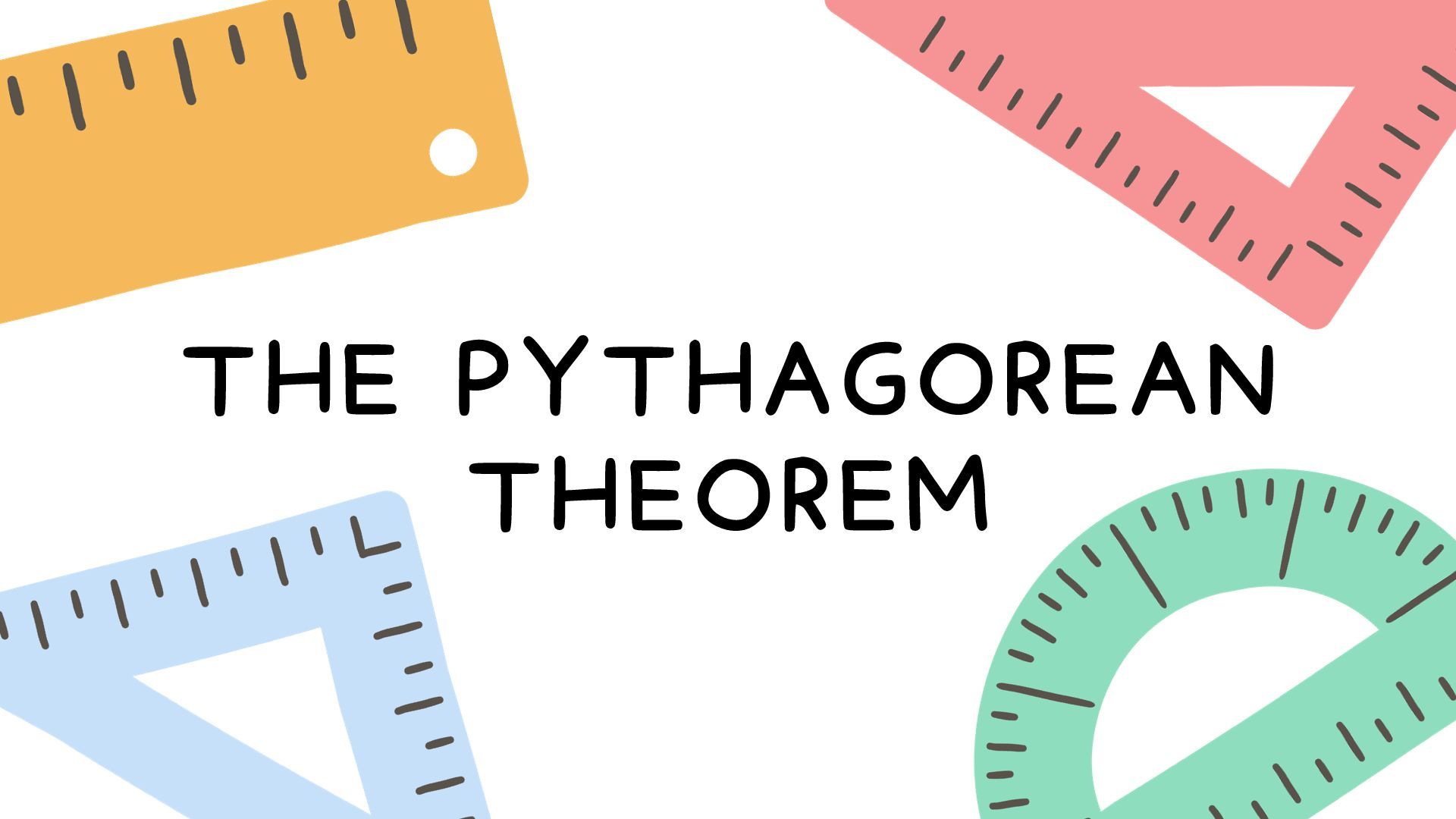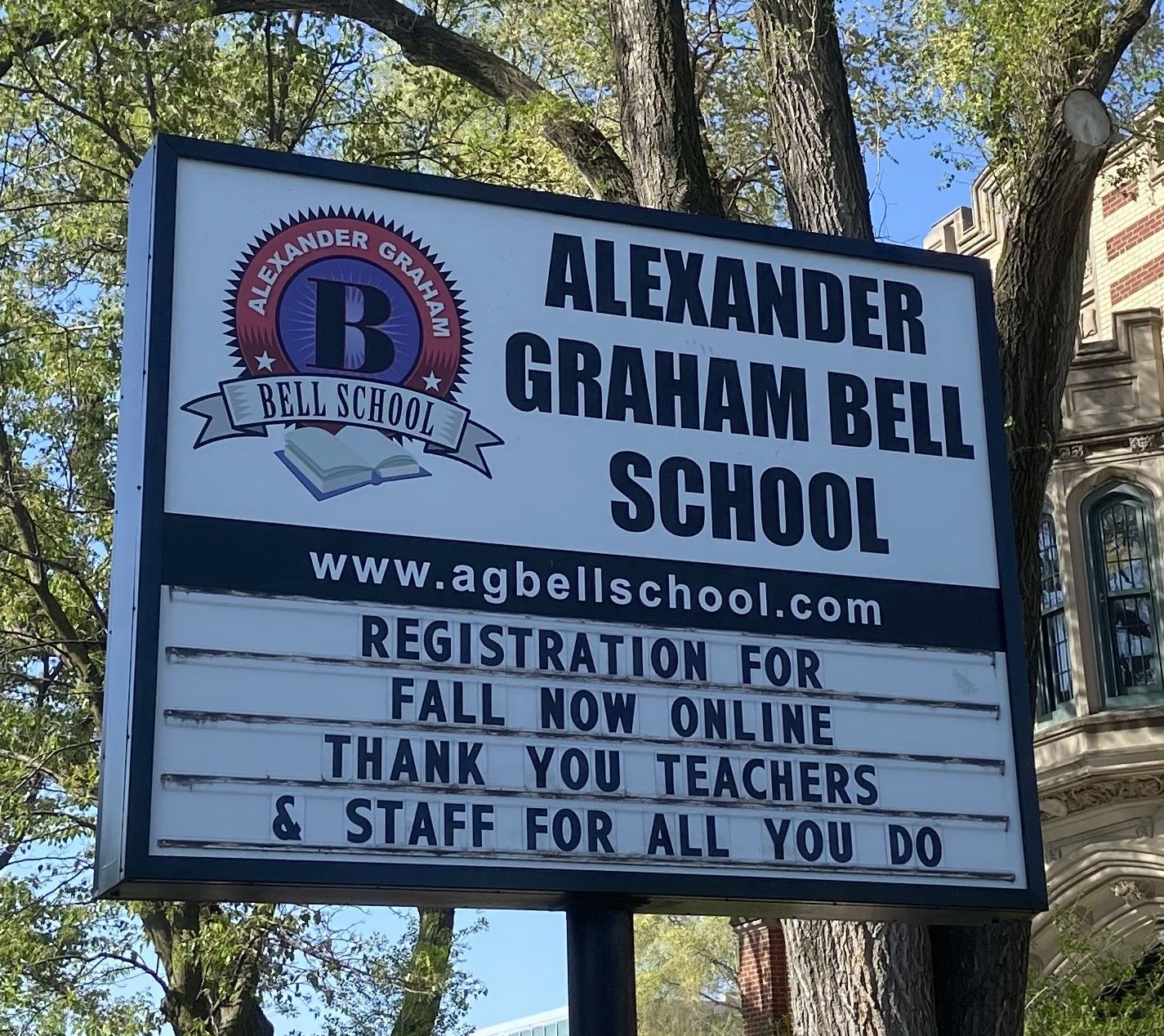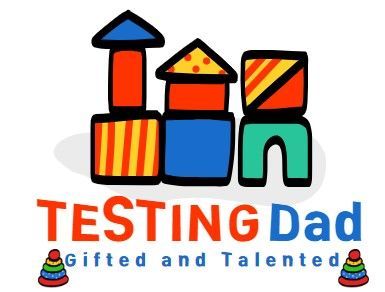Regional Gifted Schools
GoCPS:Regional Gifted Schools
Chicago Public Schools (GoCPS) Regional Gifted Schools
Regional Gifted Schools: How to Apply
The following guide will provide important information about the application process for the Chicago Public Schools regional gifted program, including important application dates, how to schedule the entrance exam, and tips to prepare for the entrance exam.

By David Marden
•
May 14, 2024
Real Estate For Families: Relocation and Education Nestled in the vibrant neighborhood of Logan Square , Hausmarkt has carved a niche for itself as the go-to real estate brokerage for families prioritizing education in their home searches. Originally catering to a wide array of home buyers, including those seeking specific architectural styles like “ranch homes for sale ” or “ Victorian homes for sale ”, Hausmarkt has seen a significant shift in client interests. Today, the most popular requests are from families eager to find homes within particular school attendance boundaries—specifically those offering esteemed educational programs such as International Baccalaureate or schools recognized with the National Blue Ribbon Award . A Shift Towards Education-Centric Real Estate The transformation in buyer priorities reflects a broader societal shift. Parents are increasingly recognizing the importance of quality education and are willing to relocate to offer their children the best opportunities. This change in consumer behavior prompted Hausmarkt to adapt and evolve. They recognized early on that the future of real estate in family-heavy markets like Chicago would hinge on integrating educational considerations into the home search process. Empowering Parents with Tailored Solutions Hausmarkt responded to this demand by innovating their service offerings. They developed a specialized search tool that allows parents to filter potential homes based on specific school districts or even individual educational programs. This tool not only lists homes for sale but also provides detailed information about the schools in those areas, including academic programs, extracurriculars, and overall school performance. For families interested in specific programs like the International Baccalaureate, Hausmarkt’s tool can directly highlight homes within those precise boundaries. This approach has been a game-changer for parents who place a premium on education and want to ensure their children have access to specific learning environments. Building a Reputation as Education Specialists The focus on educational excellence has not only fulfilled a market need but also positioned Hausmarkt as the premier brokerage for families looking to relocate within the Chicago area. Their expertise in this niche has drawn the attention of families both local and from afar, making them the first point of contact for parents considering a move to Chicago. Community and Client Engagement Understanding that moving is a family affair, Hausmarkt also hosts community events and seminars on navigating school systems and understanding the nuances of educational opportunities in different neighborhoods. This holistic approach has solidified their reputation as not just realtors but as trusted advisors on family relocation and educational planning. The Road Ahead As Hausmarkt continues to grow, their commitment to serving education-focused families remains steadfast. They are constantly updating their tools and services to keep pace with changes in educational policies and school zoning laws, ensuring that they can always offer the most current and relevant advice. In the competitive world of real estate, Hausmarkt’s dedication to combining housing with educational opportunities has set them apart, making them not only leaders in Chicago’s real estate market but also pioneers in the family-centric home-buying sector. This specialized service ensures that every family moving to the area can give their children the best start in life, right from their very own new home. Expanding Services: Educational Consulting for Gifted and Selective Enrollment To further enhance its offerings and better serve the needs of education-focused families, Hausmarkt has introduced a custom educational consulting service. This service is specifically designed to navigate the complexities of the Chicago Public Schools (CPS) gifted and selective enrollment process. Recognizing the challenges and stakes involved, Hausmarkt provides a comprehensive guide that assists parents every step of the way. Navigating Application Dates and Deadlines One of the key components of this service is keeping parents informed about crucial application dates and deadlines. The Chicago public school system's gifted and selective enrollment programs have strict timelines that can be daunting for parents to track. Hausmarkt’s consultants ensure that families are well-prepared and timely with their applications, significantly reducing the stress associated with these deadlines. Strategic School Ranking Guidance Understanding the importance of strategically ranking schools, Hausmarkt’s consultants work closely with families to evaluate the strength of their application in relation to each school’s criteria. This personalized guidance helps parents make informed decisions on how to rank schools in the application process, maximizing their children's chances of getting into their preferred programs. Understanding Gifted Education Options The CPS offers various gifted and selective enrollment options, including Classical Schools and Regional Gifted Centers. Each option caters to different types of academic strengths and learning preferences, but you can also learn more about difference between regional gifted and classical schools : Classical Schools focus on providing a rigorous curriculum centered around language arts and mathematics. They are designed for students who demonstrate strong academic potential and excel in reasoning and problem-solving. Regional Gifted Centers provide a specialized curriculum that emphasizes conceptual thinking and creativity across all subject areas. These centers are ideal for students who show an overall high academic ability and are capable of working at accelerated grade levels. Hausmarkt’s consultants provide detailed overviews of these options, helping parents understand the differences and decide which program best suits their child’s needs and abilities. A Commitment to Educational Excellence By offering this tailored consulting service, Hausmarkt reaffirms its commitment to supporting families in making educated decisions that align with their educational goals. This service not only assists parents in navigating the selective enrollment process but also ensures that their children have the best chance to thrive in an environment suited to their unique talents and capabilities. With this addition, Hausmarkt continues to lead the way in integrating real estate services with personalized educational support, setting a new standard in family-centric home buying and contributing to the community by fostering educational advancement for the next generation.

By David Marden
•
October 20, 2023
High-Dosage Virtual Tutoring Bolsters Literacy Skills in Young Readers In a groundbreaking revelation, young children in the process of learning to read have demonstrated remarkable advancements following their participation in an intensive virtual tutoring program. These findings, unveiled today, appear to challenge established notions about the most effective methods to enhance academic performance. The program, known as OnYourMark, is specifically designed for students who faced significant difficulties in adapting to remote learning during the pandemic. Astonishingly, the research was conducted by experts who traditionally advocate for in-person tutoring, making these results all the more surprising. The study, conducted across 12 elementary schools in Texas within the Uplift Education charter network, revealed that more than 1,000 students in grades K-2 who participated in the OnYourMark program outperformed their peers on literacy assessments. This translated into significant gains, with kindergarteners showing an extra 26 days of progress in letter sounds and first graders gaining 55 extra days in decoding skills when working with a dedicated tutor. Second graders did not experience the same level of improvement. Although virtual tutoring proved somewhat less effective than in-person instruction, this model could represent a breakthrough for schools in rural areas and those encountering difficulties in recruiting tutors. Many school districts have faced challenges in their pandemic recovery efforts due to the scarcity of qualified educators or volunteers. Research by Loeb and others has revealed that only a fraction of students in need take advantage of on-demand virtual tutoring programs. OnYourMark Education, a nonprofit organization, differs significantly from the virtual models that were traditionally criticized by researchers like Loeb. This program is available four times a week during regular school hours and employs tutors who undergo training in the science of reading, including college students, retired educators, and those with experience in other virtual tutoring companies. When the program was initially piloted with Uplift, Sjoblom had concerns about whether tutors could build strong relationships with young children remotely. The program's format was adjusted to 20-minute sessions, allowing tutors to engage in informal conversations with students before focusing on decoding and fluency, which proved to be more effective. Currently, OnYourMark serves 22 schools across seven states, with plans to expand its reach further. The nonprofit received $250,000 in funding from Accelerate, an organization supporting effective tutoring programs, and is a semifinalist for the Yass Prize, a $1 million award recognizing successful education providers. Susanna Loeb's team employed two widely used assessments, Dynamic Indicators of Basic Literacy Skills (DIBELS) and MAP Reading Fluency from NWEA , to assess the program's impact. The results showed that kindergarteners assigned to OnYourMark recognized 3.5 more letter sounds per minute compared to students without tutoring, and first graders displayed improvements in sound mastery and decoding skills. Although the one-on-one model yielded the strongest results, the program remained effective when students worked in pairs with a tutor, making it a practical option in cases where staffing challenges exist. The outcomes among second graders were less significant, attributed to their delayed exposure to foundational skills due to the pandemic's impact. Despite the challenges, achieving these results with a startup program is indeed impressive. Future research will focus on identifying the specific skills that tutors should emphasize when working with second and third graders. OnYourMark effectively meets the needs of the Uplift network, offering tutoring for younger students, who are often overlooked by many tutoring companies that primarily target higher grade levels. This initiative provides support to a high-poverty population that may not have access to private tutoring, thus ensuring young readers receive the assistance they require. Ultimately, this program has been integrated into the school day, underscoring its high priority in educational support.

By David Marden
•
October 18, 2023
Teachers, despite being among the most highly educated professionals in the nation, are experiencing a pronounced decline in their earnings. On average, their income lags significantly behind that of similarly educated workers, a trend that has persisted since 2010. While over 95% of elementary, middle, and high school teachers hold at least a bachelor's degree, their full-time, year-round earnings in 2019 were $53,800 for elementary and middle school teachers and $57,840 for high school teachers, both falling short of the earnings of their similarly educated counterparts in other fields: Biological scientists ($69,880) Urban and regional planners ($79,790) Physical therapists ($81,580) Statisticians ($96,320) Even among those teachers who furthered their education with a graduate degree, their earnings still trailed behind those of equally educated professionals: Elementary and middle school teachers ($61,130) High school teachers ($64,340) Both newer and more experienced teachers faced the earnings disparity when compared to their similarly educated peers. For instance, teachers' income was surpassed by the following professionals, many of whom also possess graduate degrees: Judicial law clerks ($77,960) Biological scientists ($76,260) Geoscientists and hydrologists ($111,100) Moreover, teachers' earnings were lower than occupations with a significantly lower percentage of advanced degrees, such as: Human resources workers (19.4% with a graduate degree; $77,430) Accountants and auditors (27.4% with a graduate degree; $84,050) Registered nurses (12.6% with a graduate degree; $82,210) The earnings gap persisted across age groups, impacting both younger teachers (aged 25-34) and older/middle-aged teachers (aged 55-64) with at least a bachelor's degree. The earnings disparity is evident for both male and female teachers, although women bear the brunt of it, given their higher representation in the teaching profession—comprising 80% of elementary and middle school full-time teachers and 56% of high school teachers. Notably, teaching stands as the second-most common occupation among women in 2019, second only to nursing. What's particularly alarming is that while median earnings for most full-time, year-round workers have rebounded since the Great Recession, teachers have experienced a continued decline in their earnings. Median earnings for all full-time, year-round workers increased by 2.6% since 2010, reaching $50,078 in 2019 dollars. In contrast, elementary and middle school teachers saw an 8.4% decrease in their median earnings, dropping from $57,180 to $52,368 in 2019 dollars. High school teachers also faced a decline of 4.4%, decreasing from $59,529 to $57,033. With nearly 3 million full-time teachers, they constitute 6.7% of the total college-educated, full-time workforce and 9.8% of workers holding a graduate degree. The statistics emphasize that the return on investment for teachers pursuing higher education is notably lower than in many other professions. The data presented in this report draw from the American Community Survey and detailed tables. An interactive data visualization, available below, allows users to explore and compare teachers' earnings with those in various occupations. It enables users to examine median earnings for workers with different levels of educational attainment and specific demographic groups, including men, women, and age categories. For occupations like teaching, where at least 90% of workers possess at least a bachelor's degree, the visualization also provides insight into the change in median earnings from 2010 to 2019.

By David Marden
•
October 6, 2023
Introduction Illinois has taken a significant stride towards enhancing its education system with the implementation of the "Illinois Invest in Kids Act." Enacted in 2017, this groundbreaking legislation has transformed the landscape of education in the state. In this article, we will explore the key aspects and potential impact of the Illinois Invest in Kids Act. A New Era for Education Funding The Illinois Invest in Kids Act was introduced to address the longstanding challenges faced by the state's education system, including disparities in funding and limited access to quality education for all students. The primary focus of this legislation is to provide families with more choices when it comes to their children's education. Tax Credit Scholarships At the heart of the Illinois Invest in Kids Act are Tax Credit Scholarships (TCS), a groundbreaking initiative aimed at expanding educational opportunities for Illinois students. Under this program, individuals and corporations can receive tax credits in exchange for donations to Scholarship Granting Organizations (SGOs). These SGOs, in turn, provide scholarships to eligible students from low-income families. The Act opens the door for these students to attend private schools, including parochial and non-religious options, thereby giving families the ability to choose the educational environment that best suits their children's needs. Empowering Families One of the Act's fundamental principles is empowering families with choice. It recognizes that a one-size-fits-all approach to education may not cater to the diverse needs of students. By offering scholarships to students from underserved communities, the Act enables families to explore alternatives to traditional public schools, including private and religious institutions. This newfound flexibility allows parents to make informed decisions about their children's education, tailoring it to individual learning styles and preferences. It promotes healthy competition among educational institutions, encouraging them to strive for excellence to attract and retain students. Boosting Educational Quality The Illinois Invest in Kids Act also has a ripple effect on the quality of education statewide. By incentivizing private schools to admit students with scholarships, it fosters an environment of excellence and accountability. These institutions are encouraged to maintain high standards of education to attract scholarship recipients. Moreover, the Act promotes collaboration and information-sharing between public and private schools, leading to a holistic improvement in the quality of education offered throughout the state. This cross-pollination of ideas and best practices benefits all students, regardless of their educational setting. Conclusion The Illinois Invest in Kids Act represents a monumental shift in education policy, providing students and their families with choices that were once out of reach. By enabling Tax Credit Scholarships, the Act is making quality education more accessible and affordable for low-income families while fostering competition and innovation in the education sector. As the state continues to invest in its children, the Illinois Invest in Kids Act stands as a beacon of hope for a brighter educational future.

By David Marden
•
October 4, 2023
Pythagorean Theorem: Possibly the Bablyonian Theorem? The Pythagorean Theorem, which is often associated with Pythagoras, is actually documented on an ancient Babylonian clay tablet known as IM 67118, predating Pythagoras by more than a millennium. This tablet, believed to be used for instructional purposes, dates back to 1770 BCE, centuries before Pythagoras' birth around 570 BCE. In another tablet from approximately 1800-1600 BCE, there are inscribed squares with labeled triangles inside. These inscriptions, using the base 60 counting system employed by ancient Babylonians, reveal their knowledge of the principles that would later be known as the Pythagorean theorem, albeit without that specific name. Mathematician Bruce Ratner, in a paper on the subject, concludes, "The Babylonians knew the relationship between the length of the diagonal of a square and its side: d=square root of 2. This was probably the first number known to be irrational. However, this, in turn, means that they were familiar with the Pythagorean Theorem – or, at the very least, with its special case for the diagonal of a square (d2 = a2 + a2 = 2a2) – more than a thousand years before the great sage for whom it was named." So, why is the theorem attributed to Pythagoras? The lack of surviving original writings from Pythagoras himself plays a role. Our knowledge of him is primarily passed down through others, particularly the Pythagoreans, a group connected to the school he established in what is now southern Italy, known as the Semicircle of Pythagoras. While this school was secretive, the knowledge gained there or developed was disseminated and often ascribed to Pythagoras himself. "One reason for the rarity of Pythagoras' original sources was that Pythagorean knowledge was passed on from one generation to the next by word of mouth, as writing material was scarce," Ratner explained. "Moreover, out of respect for their leader, many of the discoveries made by the Pythagoreans were attributed to Pythagoras himself; this would account for the term ‘Pythagoras' Theorem’." Although Pythagoras didn't originate the theory, his school played a pivotal role in popularizing it, and it remained associated with his name for millennia to come.

By David Marden
•
September 23, 2023
With college application deadlines looming, parents and high-school seniors face a dilemma. The federal financial-aid process's shifting timeline adds uncertainty to an already challenging decision-making process. Explore options and expert advice on managing college applications and financial aid in these uncertain times.

By David Marden
•
September 23, 2023
A Parent's Comprehensive Guide to Preparing for Kindergarten Embarking on kindergarten is a significant milestone in your child's life, marking their initial step into formal education. Naturally, this transition can evoke a mix of emotions, including excitement, anxiety, and anticipation, not just for your child but for the entire family. To ensure a smooth adjustment to this new phase, it's essential to grasp the concept of kindergarten readiness and learn how you can support your child and the entire family during this change. What Should Your Child Be Proficient in Before Kindergarten? Basic Self-Care Skills: By the time your child reaches kindergarten, they should possess the ability to perform simple self-care tasks such as using the restroom independently, washing their hands, and dressing themselves. These skills are crucial for nurturing independence and managing daily routines at school. Letter and Number Recognition : A kindergartner should have the capacity to recognize the majority of letters in the alphabet and numbers from 1 to 10. While they don't need to read or write fluently, getting acquainted with these fundamentals readies them for early literacy and numeracy activities. Social Skills : Kindergartners should be capable of engaging harmoniously with their peers and adults, which includes sharing toys, taking turns, and effectively expressing themselves. Basic Motor Skills : Activities like holding a pencil, cutting with safety scissors, or bouncing a ball play a pivotal role in honing motor skills and coordination. Listening and Following Instructions: Your child should be adept at listening attentively and adhering to simple instructions, essential skills for classroom learning. Seamless Transition to Kindergarten: Parental Guidance Establish a Routine: Kindergarten often brings about a new schedule for your child. Easing into this routine prior to the start of school can alleviate anxiety and facilitate a smoother transition. Consistency in scheduling is key. Visit the School : Familiarize your child with their new school by arranging a tour, meeting the teacher, and exploring the playground. This can help dispel any apprehensions about the unfamiliar. Read Books about Starting School : Reading age-appropriate books centered on commencing school can assist your child in comprehending what to anticipate. It also provides an opportunity for your child to voice any concerns or questions. Encourage Independence: Motivate your child to master self-care tasks. This not only fosters a sense of accomplishment but also equips them to autonomously manage their day at school. How Can Other Family Members Contribute? Supportive Siblings : Older siblings can play a pivotal role in supporting a child embarking on kindergarten. Encourage them to share their own positive experiences and reassure the younger one about the enjoyable aspects of school. Involve Grandparents : Grandparents can provide emotional support and recount stories from their own school experiences. They can also assist with reading or crafting activities to develop essential skills. Family Readiness : Ensure that all family members are well-informed about the new routines and changes. This cultivates a supportive environment for your child, fostering a sense of security and love. Kindergarten readiness encompasses more than just academic aptitude; it encompasses a blend of social, emotional, and physical skills, all of which contribute to your child's holistic experience. Remember that each child is unique, and readiness may manifest differently for each individual. Exercise patience, offer ample encouragement, and, above all, convey to your child that learning is a journey filled with fun, discovery, and the occasional stumble—all integral parts of growing up.

By David Marden
•
September 23, 2023
Chicago Public Schools (GoCPS) Useful Tips for Enrollment Assistance The purpose of the CPS High School admission entrance examination or the Selective Enrollment entrance exam for elementary school is to align students with educational programs that suit their needs. It's crucial that every student has the chance to showcase their true level of achievement and abilities. Our objective is to minimize the impact of disabilities as much as possible. This ensures that students with disabilities are evaluated on an equal footing with their non-disabled peers. We achieve this by providing accommodations as specified in the student's 504 Plan or Individualized Education Program (IEP). What exactly is an accommodation? An accommodation refers to a modification in the assessment procedure that minimizes the influence of a disability as much as possible. For instance, if a student's IEP states that they have fine motor difficulties and cannot fill in answer bubbles, and it specifies the need for a scribe to assist with the answer sheet, we would arrange for information transfer from the test booklet to the answer sheet through a scribe. This approach enables us to measure the student's knowledge without negatively affecting their score due to inefficient bubble filling. Accommodations don't alter the nature of the skills or abilities being evaluated; they simply change how those skills or abilities are assessed. Accommodations alleviate any obstacles the student may face in accessing the test content, enabling them to demonstrate their knowledge and abilities effectively. Decisions regarding accommodations are made during the IEP or 504 Plan meeting by the IEP team, which comprises various educators, parents, specialists, and relevant stakeholders. Medical diagnoses from physicians, independent psychological evaluations, and reports from other specialists can support the determination of a disability and the necessity for accommodations. However, these reports alone are insufficient to determine a student's eligibility for accommodations. Instead, the student must possess a current IEP or 504 Plan from a public school. What can parents do when applying for Selective Enrollment Schools? When completing your child's application, be sure to indicate "yes" for items indicating that your child has an IEP/504 Plan. This designation will not negatively impact your application in any way. OAE encourages all parents to apply early. If your child attends a Chicago public school, charter school, or contract school, CPS will obtain their IEP or 504 Plan from the Student Information System. CPS can also access the IEPs/504 Plans of private/parochial school students who have had their IEP/504 Plans developed by the Chicago Public Schools. It's crucial that your child's IEP or 504 Plan is up-to-date and includes the necessary accommodations for testing. If you are the parent of a young child, please ensure that your IEP/504 team completes the section of the IEP that lists District/State Assessment Accommodations (located in Section 10(c) of the IEP) and Section 5(2) of the 504 Plan. The accommodations listed in these sections (District/State Assessment Accommodations Section 10(c) – Testing Accommodations or 5. Accommodations and Modifications: Classroom/Testing for Section 504) are the accommodations that will be provided for selective enrollment testing. Below is a sample list of accommodations that you should discuss with your IEP/504 team to determine if these accommodations are needed to support your child during testing. Examples of Accommodations: Extended Time: Some students may require extended time limits on certain tests to account for slow work rates, benefiting those who use magnifiers, have attention disorders, or need assistance with word identification or reading. Individual/Small Group Administration: Students may benefit from being tested in small groups or individually, especially if they need extra breaks or are easily distracted in a classroom-testing setting. Large-Print Edition: Students with visual impairments may find the use of a large-print test version beneficial. Braille Edition: Students accustomed to Braille materials in their classroom instruction may benefit from taking the Braille version of the tests. Communication Assistance: A test administrator proficient in the signing or cueing methods used by the student may need to repeat directions or certain portions of the test to clarify procedures without providing answers. Repeated Directions: Directions may be read aloud as many times as necessary to ensure students understand the proper procedures. Test Read Aloud: Students with reading disabilities may require portions of tests or entire tests to be read aloud to them to ensure their reading skills do not hinder their achievement measurement. However, reading comprehension and vocabulary tests cannot be read aloud as this would compromise assessment validity. Answers Recorded/Scribe: An assistant or proctor may record a student's answers on the answer sheet if the student is unable to do so due to their disability. Transferred Answers/Scribe: Responses recorded in test booklets or by technologically assistive devices can be transferred to the student's answer sheet for scoring preparation. Other: Accommodations noted in Section 10(c) of a student's IEP or Section 5(2) of a student's 504 Plan that are not included in the above list may also be utilized if deemed appropriate for the exam.

By David Marden
•
September 13, 2023
Unveiling the Magic of CVC Words: A Fundamental Building Block in Reading and Writing CVC words, or Consonant-Vowel-Consonant words, play a pivotal role in early literacy development. These three-letter words form the foundation of reading and writing, making them an essential part of any beginner's language journey. In this article, we'll explore the significance of CVC words and provide a list of common examples to aid educators, parents, and young learners. What Are CVC Words? CVC words are simple words comprised of three primary components: Consonant (C): The first letter in a CVC word is a consonant. Consonants are the speech sounds produced when airflow is obstructed in the vocal tract. Examples include "b," "c," "d," and "f." Vowel (V): Following the consonant, there is a vowel. Vowels are speech sounds produced without any significant obstruction of airflow. Examples include "a," "e," "i," "o," and "u." Consonant (C): Finally, another consonant follows the vowel to complete the CVC word. The Significance of CVC Words: CVC words are the stepping stones that young learners use to unlock the world of reading and writing. Here's why they are so important: Phonemic Awareness: CVC words help children develop phonemic awareness, which is the ability to recognize and manipulate individual sounds (phonemes) in words. This skill is crucial for reading and spelling. Decoding Skills: Learning CVC words provides a strong foundation for decoding unfamiliar words. Once children grasp the CVC pattern, they can apply it to new words they encounter. Fluency Development: CVC words are often introduced early because they are easy to sound out. This helps young readers build fluency and gain confidence in their reading abilities. Building Vocabulary: Many common words, including nouns and verbs, follow the CVC pattern. Mastering CVC words expands a child's vocabulary. Examples of CVC Words: Here's a list of CVC words that you can use for teaching and practice: bat cat dog pen map sit bug top hop run How to Teach CVC Words: Teaching CVC words can be an engaging and interactive process. Here are some strategies: Use Flashcards: Create flashcards with CVC words and pictures to reinforce the connection between letters and sounds. Word Families: Teach CVC words within word families (e.g., -at, -an, -ig) to show patterns and facilitate learning. Games: Engage children in games like "Word Bingo" or "CVC Word Scavenger Hunt" to make learning fun. Read Aloud: Choose books with CVC words to read aloud, helping children see these words in context. Writing Practice: Encourage writing CVC words by providing worksheets and tracing activities. Phonics Apps: Use educational apps designed for phonics and CVC word practice. In Conclusion: CVC words are the cornerstone of early literacy. By mastering these simple words, young learners build the skills needed to become confident readers and writers. Whether you're an educator, a parent, or a young learner yourself, CVC words are a critical part of the exciting journey into the world of language. Remember that learning CVC words should be a positive and enjoyable experience. Through creative teaching methods and practice, learners can quickly grasp the magic of CVC words and set a solid foundation for their language skills.
Interested in our services? We’re here to help!
We want to know your needs exactly so that we can provide the perfect solution. Let us know what you want and we’ll do our best to help.

